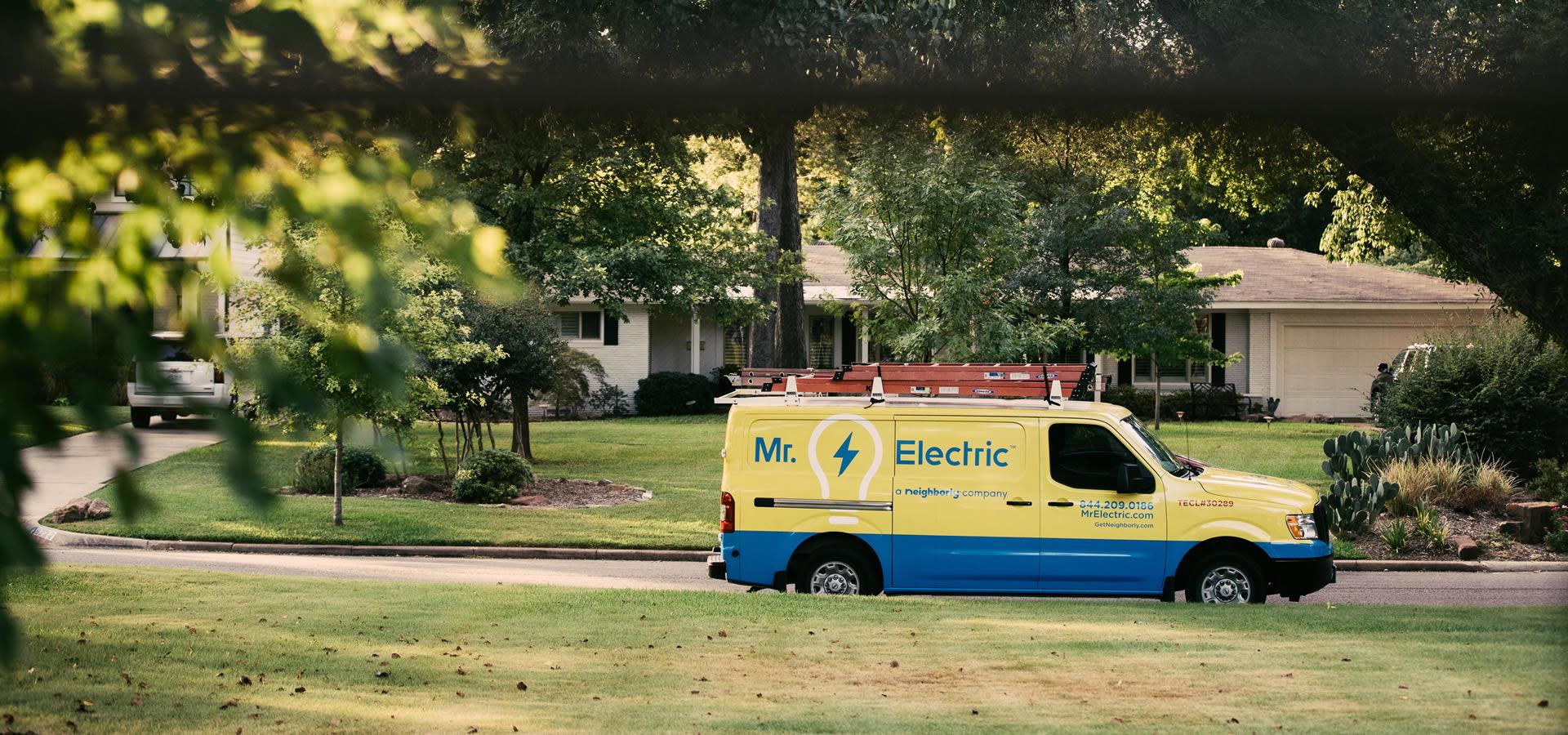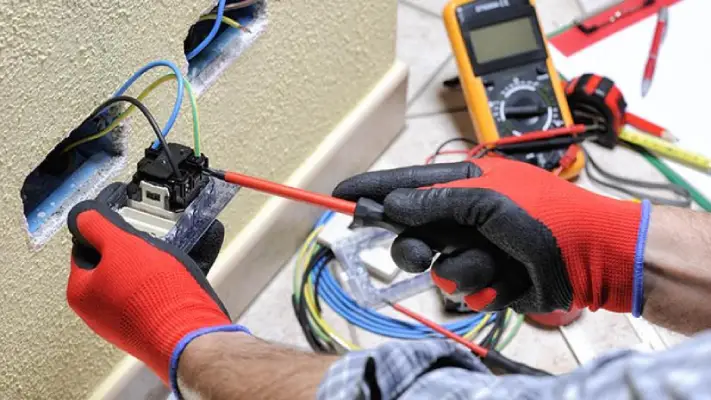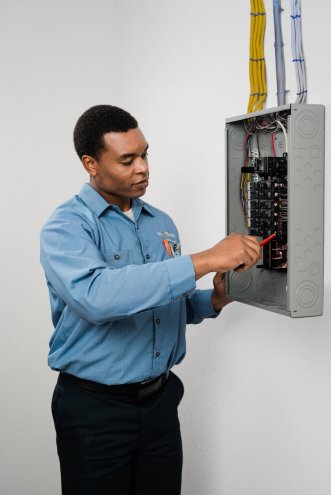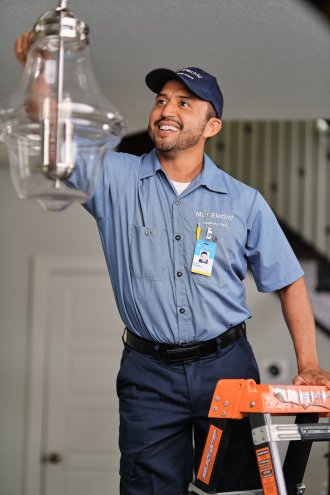Understanding Residential Electrical Wiring
Residential electrical wiring is an essential component of every home, providing the power needed for lights, appliances, and electronic devices. Troubleshooting issues, planning upgrades, and guaranteeing the protection of your household can all be facilitated by comprehending the fundamentals of your home's electrical system.
In this blog post, our professionals from Mr. Electric will explore the fundamentals of residential electrical wiring, including the role of an electrician.
The Role of an Electrician
A trained professional who installs, maintains, and repairs electrical systems is known as an electrician. In residential environments, electricians are responsible for a wide range of tasks, including the wiring of new homes and the resolution of electrical problems in existing ones. Their knowledge is essential for guaranteeing the safe and efficient operation of your home's electrical system. Hiring a licensed electrician is particularly important because they are familiar with local building codes and safety standards, which must be followed to prevent hazards like electrical fires or shocks.
When to Contact an Electrical Repair Service
Electrical issues can be both hazardous and inconvenient. Flickering lights, frequent circuit breaker trips, and outlets that don’t work are all signs that you may need to call an electrical repair service. Attempting to fix these issues on your own can be risky, especially if you lack the proper knowledge and tools. A safe and effective solution can be provided by a professional electrician who can accurately diagnose the issue. In the long term, regular maintenance by a professional repair service can also prevent minor issues from escalating into significant problems, thereby saving you time and money.
Understanding Whole House Electrical Wiring
Whole house electrical wiring refers to the comprehensive system of wires, circuits, outlets, and switches that distribute electricity throughout your home. This system is the foundation of your electrical infrastructure and must be meticulously designed and installed in order to meet your household's power requirements. The wiring system is typically hidden behind walls, making it easy to overlook, but it plays a critical role in ensuring that electricity is delivered safely and reliably to every part of your home.
The wiring in your home is contingent upon a variety of factors, such as the age of the house and the local building codes. Copper wiring is a highly durable and conductive material that is typically found in contemporary residences. Aluminum wiring may be present in older residences, which may be susceptible to overheating and necessitate modifications to comply with current safety regulations. Understanding the type of wiring in your home and its condition is essential for maintaining a safe electrical system.
Upgrading Your Home’s Electrical Wiring
If you live in an older home or if you’re planning a major renovation, upgrading your home’s electrical wiring may be necessary. An electrician can evaluate your existing electrical system and suggest modifications to enhance its functionality and safety. For example, if you’re adding new appliances or expanding your living space, your home’s existing wiring may not be sufficient to handle the increased electrical load. By upgrading to a whole-house electrical wiring system, you can guarantee that your residence is supplied with the necessary electricity without overloading the circuits.
Upgrading your wiring can also improve energy efficiency, as modern wiring systems are designed to reduce energy loss and minimize the risk of electrical fires. It is an investment in the safety and value of your property that can yield long-term benefits.
Need a Reliable Company?
Are you in need of an electrician? Luckily, we at Mr. Electric have dedicated workers ready at your service. Contact our representatives for more questions.







